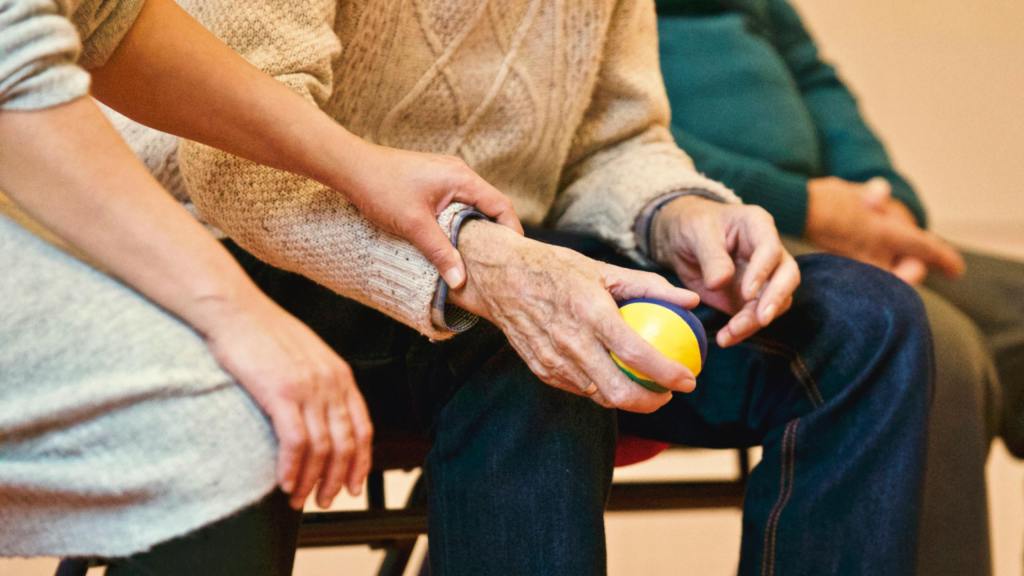
My loved one with dementia won’t eat. What should I do?
Are feeding tubes ever appropriate?
“There is good research on this, finding that feeding tubes used in the last six months of life in cases of dementia do nothing to prolong life,” Geri R. Hall, PhD, ARNP, GCNS, FAAN, shared with me. “Patients tend to die from aspiration pneumonia (breathing in saliva). Placing a feeding tube does not stop saliva production and is one of the most uncomfortable things we do to medical patients … When the patient can no longer eat, they go into a calm, mostly pain-free state. It can take as long as 45 days for the patient to pass. The current standard of practice is no feeding tube.” My dad died a horrible death and was gone within seven days of those last three bites of coconut cream pie. I cannot imagine him lingering for 45. When he stopped eating he went into convulsions, and because he had lost the ability to vocalize, we witnessed “silent screams” where his face would turn red, he would buckle over onto his side, and he would grit his teeth in pain. I’m not saying dad should have had a feeding tube. His advanced directives (which I suggest everyone have) specifically said he did not want that. And what he wanted is all that matters. In research published in JAMA in August, Harvard doctors noted that feeding tube retention rates from 2000 to 2014 among nursing home residents with advanced dementia dropped from 12 percent to 6 percent. “To ensure the message from existing evidence and expert recommendations is disseminated and disparities are reduced, fiscal and regulatory policies are needed that discourage tube feeding and promote a palliative approach to feeding problems in patients with advanced dementia,” the authors concluded.
Caregiving at home means freedom of choice
When you care for a loved one in your own home, you can set many of your own rules. One caregiver I interviewed told me she believes her 54-year-old husband’s feeding tube has in fact improved his quality of life. “He still lives life and enjoys getting out and about. Right now, our discussion is leaning toward ‘no’ on a tracheostomy.” Tracheostomies are tubes that allow a person to breathe without using their nose or mouth, which produce secretions in the lungs. A recent case study on a woman in her 80s with mild dementia and dysphagia (inability to swallow) suggested framing discussions about feeding tubes in a similar manner. “Our patients and families need to understand why the dysphagia is happening and how likely it is that it might resolve or improve,” wrote Dr. Ross H. Albert in JAMA Internal Medicine. “Understanding goals – aggressive, conservative, or comfort-focused allows us to shape medical decisions to fit within their framework.”
More insights like this:
-

Delirium vs. Dementia: Causes, Symptoms, Treatments, and Preventative Measures
Read more: Delirium vs. Dementia: Causes, Symptoms, Treatments, and Preventative Measures5 Key Things Family Caregivers Need to Know About Delirium and Dementia Onset and Course Are Key Clues That Caregivers Should Watch Closely Delirium develops suddenly (hours or days) and often fluctuates; dementia progresses gradually over months or years. Acute changes in thinking or attention should trigger urgent medical evaluation. Delirium and Dementia…
-

What Caregivers Should Know About Early-Onset Alzheimer’s
Read more: What Caregivers Should Know About Early-Onset Alzheimer’sSymptoms, Stigma, Diagnosis, and Treatment Early-onset Alzheimer’s disease, also known as younger-onset, is the development of Alzheimer’s symptoms between the ages of 30 and 65. A diagnosis is relatively rare at a younger age, and while over 6 million people in the United States are living with Alzheimer’s disease, the true prevalence of early-onset is uncertain.…
-

15 Tips on Transitioning a Loved One to Memory, Dementia, or Alzheimer’s Care
Read more: 15 Tips on Transitioning a Loved One to Memory, Dementia, or Alzheimer’s CareAs a part of your journey caring for someone with Alzheimer’s or another form of dementia, there may come a time when the effects of the disease become too much for a caregiver to handle, and one must seek alternative care options. When deciding the right time to transition your loved one to…